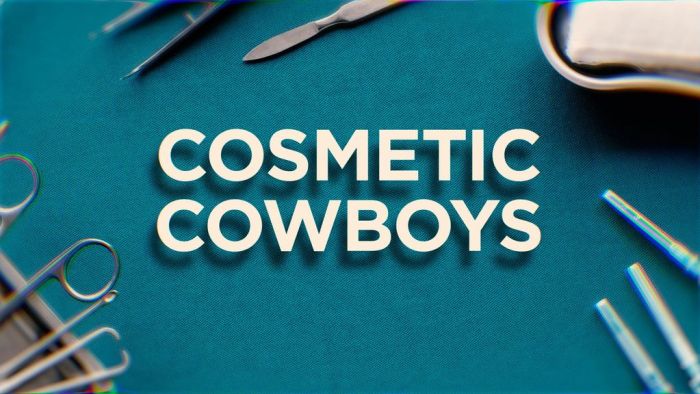The Australian Health Practitioner Regulation Agency (AHPRA) in conjunction with the Medical Board of Australia have this week announced a sweeping review of Australia’s multi-billion dollar cosmetic surgery industry. Concerns have been raised regarding a culture of prioritising profit, leading to dangerous practices that have sparked widespread concerns about patient safety.

The external review into the industry, led by outgoing Queensland Health Ombudsman Andrew Brown, will look at methods to better protect patients, and examine the ethically murky practice of the use of social media by some cosmetic surgeons to promote their services. The review follows the explosive findings of a joint investigation by the Sydney Morning Herald, The Age and ABC’s Four Corners. The story is probably best remembered for exposing the unscrupulous actions and policies of multimillionaire surgeon Daniel Lanzer. Challenging the outward notion that is presented through his popular social media accounts of a fun and caring cosmetic surgeon who wants to make Australians feel better about themselves, the report used interviews with former staff members, medical experts, and ex-patients to paint a markedly different picture.
The investigation went on to describe the way Lanzer runs his clinics as “chaos”. Nurses such as Lauren Hewish and Justin Nixon tell stories that sound like something out of a horror film. “People are just pushed in and out, blood everywhere, fat everywhere,” Hewish divulged. “It’s absolute chaos… Multiple surgeries running through the day, doctors going from room to room. It’s just bloody, messy, gruesome,” Nixon expands. Former patients joined ex-employees, with Kathy Hubble developing an infection of cellulitis so bad she had to spend a week in the hospital after attending Lanzer’s clinic in 2018 for a routine liposuction procedure. “It got to the point where I couldn’t sit, I couldn’t stand, I couldn’t lie down,” she said. “I’ve never had such agony in all my life.”

These were far from the only violations on Lanzer’s watch. The report details questionable conduct such as procedures involving twice the amount considered safe being removed during liposuction procedures. And perhaps most disturbingly, members of staff being asked to take home human fat to store in their fridges to hide from regulators during inspections.
Regulator Action
The AHPRA has already taken steps to curtail the problems in this industry. Last month they issued Lanzer with a legally enforceable undertaking to stop practising medicine in Australia, while they complete their investigation. In addition, one of his senior associates, Dr. Daniel Aronov, was banned from practising cosmetic surgery earlier in the week. AHPRA CEO Martin Fletcher has confirmed that the inquiry was triggered by the joint media investigation. “Obviously we were very concerned by the material that was broadcast on Four Corners and although some of that was known to us and were matters we were actively investigating, there was an awful lot of information we didn’t know.”
Fletcher also acknowledged that the cosmetic surgery industry was different to other areas of medicine, having developed some unique elements. “Some worrying features of the cosmetic industry set it apart from conventional medical practice, including corporate business models which are alleged to place profit over patient safety, no medical need for cosmetic procedures, limited factual information for consumers and exponential growth in social media that emphasises benefits and downplays risks,” Mr Fletcher said.
Some of the aforementioned interviewees of the initial investigation have come forward in support of the inquiry. Kathy Hubble said the inquiry was “absolutely necessary and had to happen. It’s unfortunate it took so long for the authorities to put the sector under the magnifying glass.” Justin Nixon said he hoped the result would be a tightening of the regulations on the industry. “It is my hope that significant change will occur to prevent further catastrophic medical events from occurring.”
Inquiry & Reform

Public consultation on the review will begin in early 2022, with a hope to report by the middle of next year. “We’ve all got a right to assume that the system is protecting us from harm, protecting us from being misled about the nature of particular procedures or the risks involved in them and protecting them from unsafe practices and I’m really keen to understand through this process how well the system is currently doing that and where there might be opportunities for improvement,” Alan Kirkland, panel member and CEO of CHOICE (Australia’s leading consumer advocacy group) said in a statement. He added that social media has changed the landscape of cosmetic surgery, with procedures that are promoted on platforms like Instagram and TikTok being available in shopping centres throughout the country.
One of the focuses of the inquiry will undoubtedly be the current law surrounding the classification of cosmetic surgeons. As it currently exists, anyone with a basic medical degree, a GP or a dermatologist can call themselves a cosmetic surgeon. Thus circumventing the qualifications necessary, some 8-12 years of specialist training, in other surgical fields. State health ministers are consulting on possible changes to the national law to protect the title of “surgeon”.
More on this investigation to come as it develops.
Subscribe to FIB’s Weekly Breaking News Report for your weekly dose of music, fashion and pop culture news!






